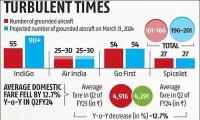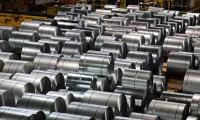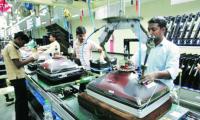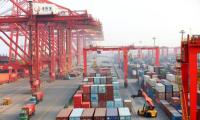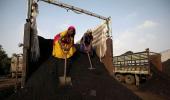ICEA Urges Lower Input Tariffs in Budget for Electronics Growth
India Cellular & Electronics Association (ICEA) calls for reduced input tariffs in the Union Budget to boost electronics manufacturing and attract global value chains.
New Delhi, Jul 2 (PTI) Ahead of the Union Budget, India Cellular & Electronics Association (ICEA) has recommended reduction in input tariffs for building a strong components ecosystem.
ICEA based its recommendations on a "tariff study" it conducted across seven competing economies, including India.
"...high tariffs on inputs limit the very engine of growth that would lead to higher production. High tariffs on inputs reduce exports because they become uncompetitive, leading to lower production of the final product, i.e., mobile phones. Addressing this requires a reduction in tariffs on inputs.
"We recognise that developing the domestic supply chain is extremely critical but the right way is not by protecting with high tariff but drastically reducing disabilities by creating competitiveness and infuse incentive schemes wherever there are gaps," the report, which was released on Tuesday, said.
To attract global value chains (GVCs) and increase the scale of production, ICEA said all tariff lines that increase costs significantly, including components of complex subassemblies, should be brought down to zero.
It also suggested removal of 2.5 per cent tariff on sub-assembly parts and inputs.
"These tariffs don't serve any purpose. They fail to build a domestic industry while increasing costs, complexity and compliance for legitimate manufacturers," it said.
The industry body further said the e-government should provide appropriate policy and financial support for building large-scale components and sub-assembly ecosystem, with a longer gestation and incentive period.
ICEA based its recommendations on a "tariff study" it conducted across seven competing economies, including India.
"...high tariffs on inputs limit the very engine of growth that would lead to higher production. High tariffs on inputs reduce exports because they become uncompetitive, leading to lower production of the final product, i.e., mobile phones. Addressing this requires a reduction in tariffs on inputs.
"We recognise that developing the domestic supply chain is extremely critical but the right way is not by protecting with high tariff but drastically reducing disabilities by creating competitiveness and infuse incentive schemes wherever there are gaps," the report, which was released on Tuesday, said.
To attract global value chains (GVCs) and increase the scale of production, ICEA said all tariff lines that increase costs significantly, including components of complex subassemblies, should be brought down to zero.
It also suggested removal of 2.5 per cent tariff on sub-assembly parts and inputs.
"These tariffs don't serve any purpose. They fail to build a domestic industry while increasing costs, complexity and compliance for legitimate manufacturers," it said.
The industry body further said the e-government should provide appropriate policy and financial support for building large-scale components and sub-assembly ecosystem, with a longer gestation and incentive period.
You May Like To Read
TODAY'S MOST TRADED COMPANIES
- Company Name
- Price
- Volume
- Shish-Industries
- 14.56 ( -6.49)
- 31960984
- Vodafone-Idea
- 11.46 (+ 1.33)
- 14913811
- Ola-Electric-Mobilit
- 33.90 (+ 8.38)
- 10347900
- Mangalam-Industrial
- 0.91 ( 0.00)
- 5567111
- Enbee-Trade-and-Fi
- 0.44 (+ 7.32)
- 4874179
